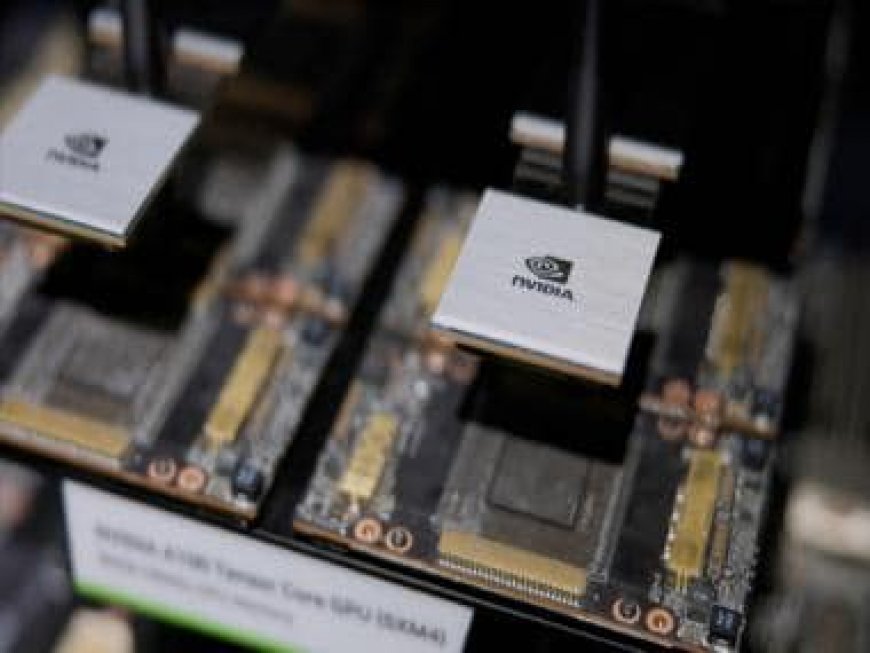Race To AI Supremacy: UAE and Saudi Arabia are falling over each other to woo Nvidia for chips
Race To AI Supremacy: UAE and Saudi Arabia are falling over each other to woo Nvidia for chips

Saudi Arabia and the United Arab Emirates are diving headfirst into an intense global race for high-performance Nvidia chips, as they look to build their own AI systems and algorithms, a Financial Times report has revealed
For those unaware, training, developing and deploying AI models require very high computing power, and need specialised processors. Nvidia currently makes some of the best AI processing chips.
Saudi Arabia and UAE’s AI dreams
Saudi Arabia and UAE have made it no secret that they’re gunning to be the top dogs in AI. They’re backing up their aspirations with ambitious plans to supercharge their economies. However, this AI push has also sparked concerns about the potential misuse of this technology by the autocratic leaders of these oil-rich nations.
People in the know have revealed that Saudi Arabia has acquired around 3,000 of Nvidia’s H100 chips at $40,000 each. These chips were acquired through the public research institution, King Abdullah University of Science and Technology or KAUST, often stylised as Kaust.
The UAE has also made significant strides, securing thousands of Nvidia chips. They’ve even rolled up their sleeves and developed their very own open-source large language model named Falcon. This feat was achieved at the state-owned Technology Innovation Institute in Masdar City, located in Abu Dhabi.
Insiders close to Nvidia and its manufacturer, TSMC, have revealed that the chipmaker is gearing up to ship approximately 550,000 of their latest H100 chips globally in the year 2023, reports FT. Most of these chips are destined for US tech companies.
Speaking of chips, Saudi Arabia’s King Abdullah University of Science and Technology (Kaust) is set to receive 3,000 of these specialized chips by the end of 2023. These chips are valued at a whopping $120 million in total.
OpenAI on the other hand, reportedly trained its advanced GPT-3 model on 1,024 A100 chips (the predecessor to Nvidia’s latest chips) in just a little over a month.
Taking things up a notch, Kaust is making some impressive moves. They’re constructing a supercomputer named Shaheen III, which is expected to be operational this year.
This powerhouse will be running 700 Grace Hoppers, which are Nvidia’s superchips designed for cutting-edge AI applications. Kaust’s plan is to use these chips to construct their very own LLMs. This creation will be similar to OpenAI’s GPT-4.
Saudi’s close ties to Chinese talent
All of this is happening under the watchful eye of the Provable Responsible AI and Data Analytics lab at Kaust. Interestingly, this team is mainly composed of Chinese researchers. It turns out that many Chinese AI experts have chosen to call Kaust home due to their restrictions on studying and working in the US after graduating from Chinese universities on the US entity list.
In the meantime, back in the UAE, they’ve been making some serious waves in the AI scene. They were actually the first nation to set up an AI ministry back in 2017. Recently, they’ve unveiled a “Generative AI Guide” as part of their commitment to solidifying their global standing as pioneers in the technology. They’re also focused on creating regulatory frameworks to keep the darker sides of technology in check.
The UAE is dead set on taking charge of its own computational power and talent. They want their own platforms and aren’t interested in relying on China or the United States for this crucial tech, sources have revealed. The Financial Times reports that sources close to Abu Dhabi’s thought process have pointed out that they’ve got the financial capital, abundant energy resources, and a knack for attracting top-notch global talent.
Interestingly, the most cutting-edge large language models (LLMs) are under the ownership of US giants such as Microsoft-backed OpenAI and Google. These groups are also the top buyers when it comes to Nvidia’s prized H100 and A100 chips.
The UAE’s Falcon model, which they’ve made available online for free, was trained on a whopping 384 A100 chips over a span of two months earlier this year.
The UAE’s government is also backing these advancements fully. They’ve acquired a fresh batch of Nvidia chips to gear up for more applications related to large language models and cloud services.
Concerns for human rights worry several, but not AI pioneers
However, not everyone is without concerns. Western AI leaders and human rights experts are raising alarms about the potential absence of ethical guidelines and safety features in the software developed by these two countries. The worry is that the software might not have the safeguards that major tech companies are working hard to integrate into their technology.
Both Saudi Arabia and the UAE have experienced a boost in their financial resources due to the windfalls from petrodollars following last year’s surge in energy prices. These two countries also oversee some of the world’s largest and most active sovereign investment funds.
Recently, representatives from funds associated with Gulf states have been reaching out to AI startups in the western world. Their aim is to gain access to valuable code and expertise in large language models (LLMs), and in return, they’re offering computing resources.
Sam Altman, the CEO of OpenAI, had some positive words to share during a visit to the region. He applauded Abu Dhabi’s foresight in recognizing the significance of AI. In a Q&A session held in the financial district of the city, he remarked that the Gulf region could indeed play a central role in the global conversation around emerging AI technology and its regulations. He also acknowledged that there had been discussions about AI in Abu Dhabi before it became a popular trend. Altman noted the excitement about the growing interest in AI and appreciated those who had been discussing it when many doubted its potential.
What's Your Reaction?


























































